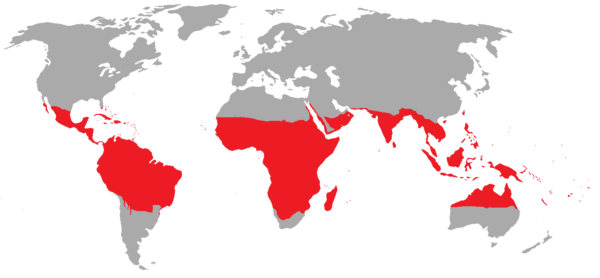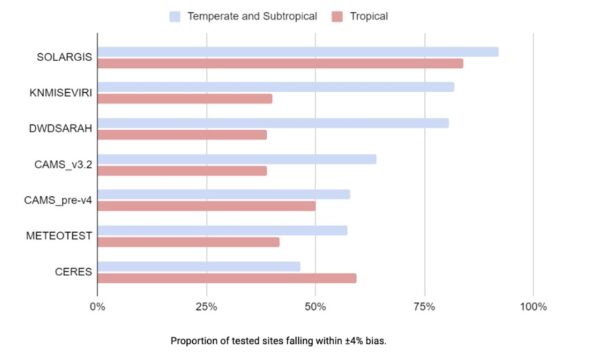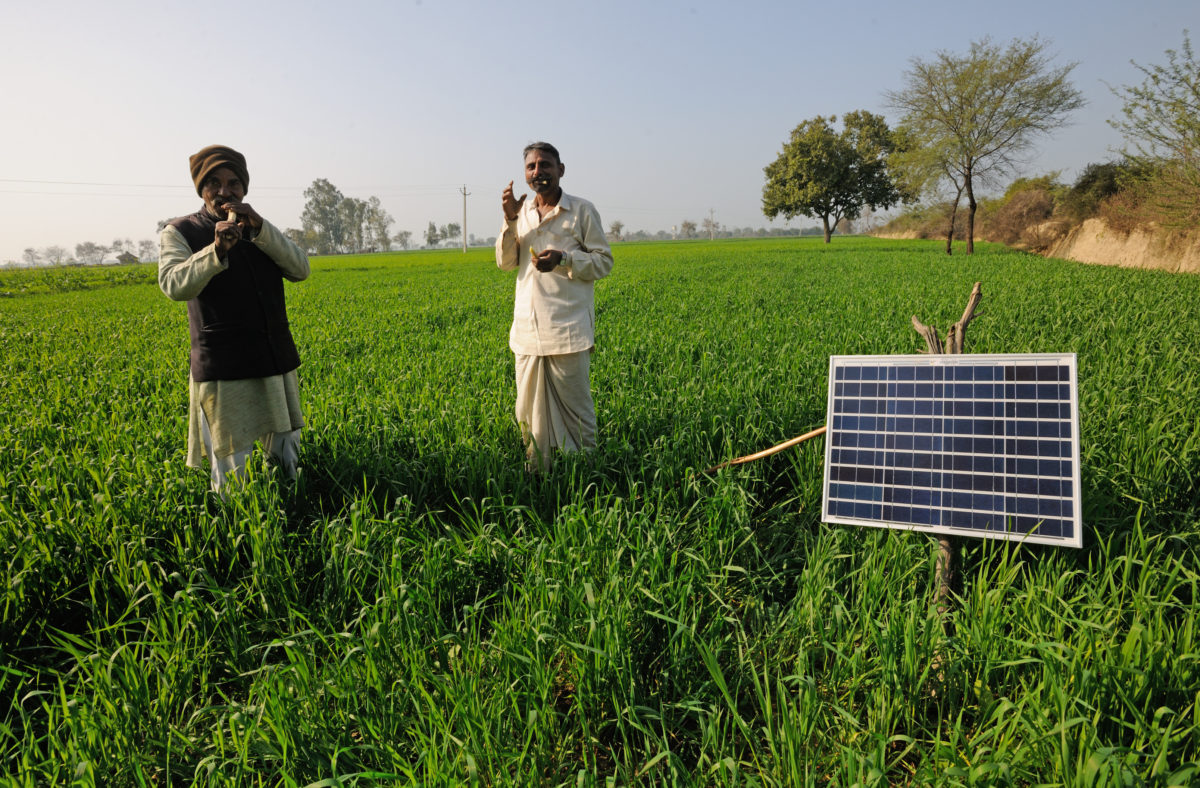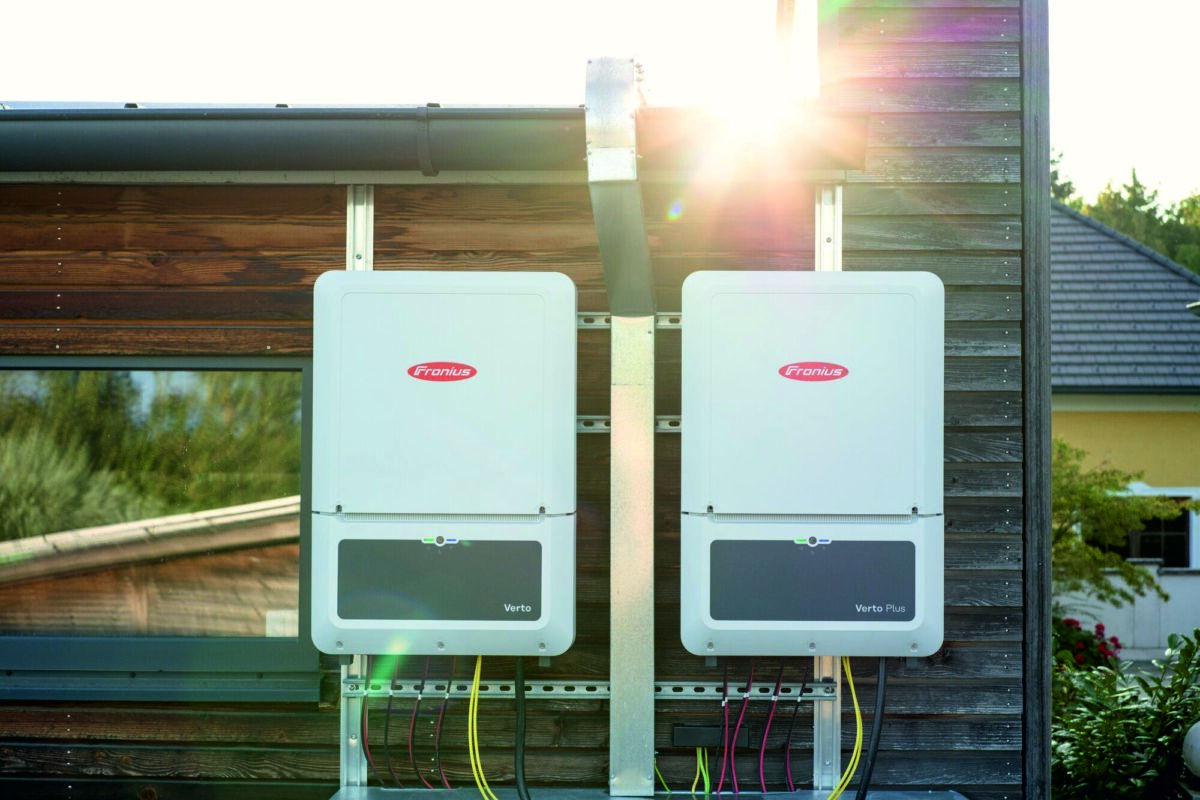Solargis said in a press release this week that “higher deviations” between satellite models and solar measurements in the tropics affect the “accuracy and reliability” of solar resource assessments and forecasts. It pointed to higher-quality assessments and on-the-ground solar measuring stations as potential solutions.
“Markets in the tropics have enormous opportunities for solar development,” said Solargis CEO Marcel Suri.
“To realize this potential the industry must collaborate to improve the quality of resource assessments and solar forecasts by increasing the number and geographical distribution of solar measuring stations.
“We need to create confidence by delivering consistently excellent data to support project financing that underpins the significant growth potential of these regions.”
The analysts came to this conclusion by comparing data published in the International Energy Agency’s “Worldwide Benchmark of Modelled Solar Irradiance Data 2023” report, a Solargis spokesperson told pv magazine. The report includes benchmarks of model-derived direct normal irradiance (DNI) and global horizontal irradiance (GHI) data for the sites of 129 globally distributed ground-based radiation measurement stations.

Solargis
The spokesperson said Solargis analysts used this data to investigate whether the deviations were consistent worldwide. They combined the information with the IEA’s findings and discovered that the deviations were “more pronounced” in tropical regions.
“This prompted Solargis’ analysts to delve deeper into understanding the reasons behind these discrepancies, and what impact these larger deviations could have on the solar markets in tropical regions,” the spokesperson said. The team found that larger deviations create “greater uncertainty” and risk over revenue calculations. This led to potential difficulties in obtaining financing for projects.
“Solargis also concluded that utilising accurate, high-frequency data and more ground stations could improve the accuracy of modelled solar irradiance estimates,” they said.
“This is because such enhancements would better capture fluctuations in solar resources caused by regional climate and geographical factors.”
The press release said that aside from scientific institutions and universities, there is a “notable scarcity” of ground-based solar measurement stations collecting data in the tropics. Due to this information gap, developers are paying to install their own ground measurement systems within the design phase of their respective PV projects.
“These are costly to maintain in remote areas, needing infrastructure investment as well as a specialist workforce to take the project from initial development through to operation,” the press release said. “Additionally, this can cause project delays as it takes around 2 to 3 years until a significant amount of reliable and accurate data is available.”
The spokesperson did not offer an estimation on how much money would be “unlocked” with improved technology, as inaccurate data affects all stages of the development of solar projects. The representative could also not specify the number of additional ground measurement systems required for a clearer irradiance picture.
The tropics present unique challenges for solar deployment, including faster degradation of crystalline silicon PV modules in humidity. Fast-moving and scattered clouds, changes in aerosols, and strong precipitation patterns are also known to affect solar irradiance, according to the press release.

Solargis
This story has been updated to provide more clarity about how Solargis came to these conclusions.
This content is protected by copyright and may not be reused. If you want to cooperate with us and would like to reuse some of our content, please contact: editors@pv-magazine.com.



2 comments
By submitting this form you agree to pv magazine using your data for the purposes of publishing your comment.
Your personal data will only be disclosed or otherwise transmitted to third parties for the purposes of spam filtering or if this is necessary for technical maintenance of the website. Any other transfer to third parties will not take place unless this is justified on the basis of applicable data protection regulations or if pv magazine is legally obliged to do so.
You may revoke this consent at any time with effect for the future, in which case your personal data will be deleted immediately. Otherwise, your data will be deleted if pv magazine has processed your request or the purpose of data storage is fulfilled.
Further information on data privacy can be found in our Data Protection Policy.